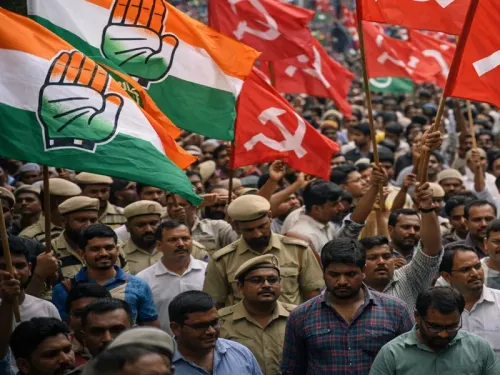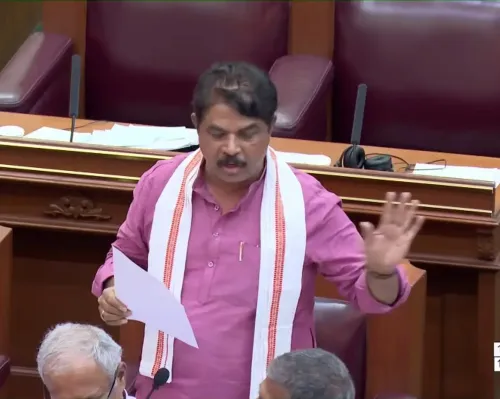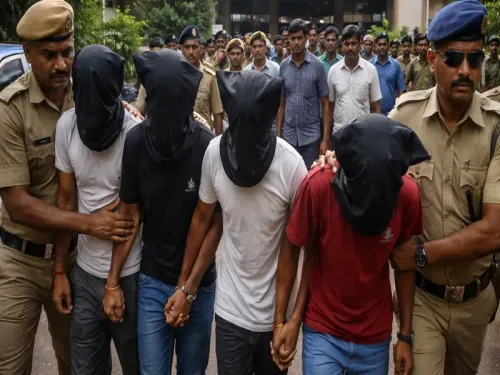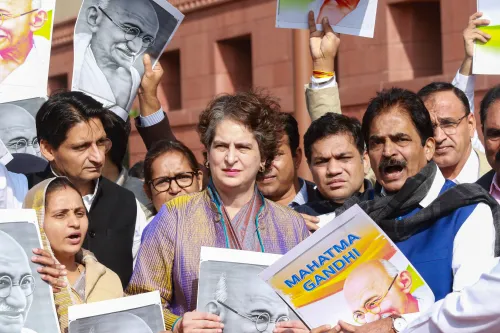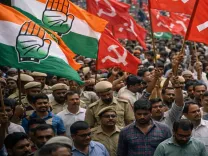How is Pradhan Mantri Van Dhan Yojana Transforming Livelihoods of Tribals in MP’s Chhindwara?
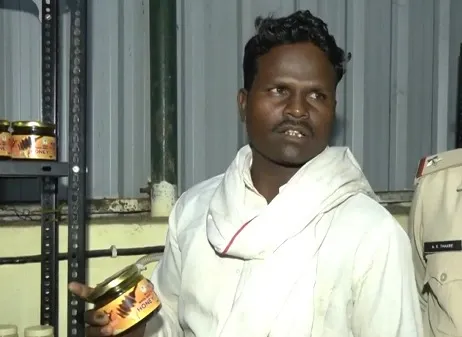
Synopsis
Key Takeaways
- Empowerment of tribal communities through self-reliance.
- Creation of 2,021 Van Dhan Vikas Kendras in Madhya Pradesh.
- Value addition to forest produce enhances income.
- Job creation for tribal youth and women.
- Support for sustainable livelihoods and forest conservation.
Chhindwara, July 5 (NationPress) The Pradhan Mantri Van Dhan Yojana (PMVDY), also referred to as the Van Dhan Vikas Yojana (VDVY), stands as a significant initiative by the Union government, focused on empowering tribal communities residing in forested regions and enhancing their livelihoods.
By prioritizing the value addition and marketing of minor forest produce, this scheme is enabling tribal individuals to boost their incomes and attain self-sufficiency.
In the state of Madhya Pradesh, the program is executed by the State Forest Department. This initiative has led to the establishment of 2,021 Van Dhan Vikas Kendras across the state, which provide training, financial assistance, and market access to tribal communities. At these centers, tribals enhance the value of various forest products, such as mahua, sal seeds, turmeric, fenugreek, and tendu leaves. These processed items are subsequently marketed in diverse regions, allowing communities to earn improved returns.
One of the most notable successes of the Van Dhan Yojana in Madhya Pradesh is the remarkable rise in income for tribal families. Beneficiaries who have undergone training and received financial aid through the scheme are now experiencing significantly higher earnings.
The initiative has played a crucial role in fostering self-reliance among tribal populations. Many tribals, no longer reliant solely on traditional forest collection for their sustenance, are now generating a sustainable income through the value addition and sale of forest products.
This scheme has also become a vital driver of employment generation within the state. The establishment of Van Dhan Vikas Kendras has created numerous job opportunities for tribal youth and women. Many tribal women actively participate in these centers, contributing to their household income and achieving greater economic autonomy.
In a conversation with IANS, Daksha, a beneficiary of the scheme, shared her insights: “I oversee the production and processing here. I package honey, amla, and various other products. Our center employs 45 individuals. We distribute our products to Bhopal and Delhi.”
Initiated by the Ministry of Tribal Affairs, Government of India, the Van Dhan Vikas Yojana aspires to uplift tribal communities nationwide. The scheme emphasizes the development of value chains for forest-based products by providing skill training and capacity building.
Under this initiative, tribal communities are motivated to form clusters to engage in the processing of forest produce, which enhances its market value. These clusters are supported with essential infrastructure, tools, and training focused on value addition, entrepreneurship, and marketing. The scheme also guarantees market linkages through both offline and online channels, expanding the reach of tribal products.
The implementation of this program follows a three-tier model: Van Dhan Vikas Kendras at the village level, Van Dhan Vikas Sanrakshan Samitis at the cluster level, and Van Dhan Vikas Samuh at the district level. The national objective is to set up 50,000 Van Dhan Vikas Kendras across India, benefiting approximately 1 million tribal entrepreneurs.
By generating alternative and sustainable livelihood opportunities, the Van Dhan Vikas Yojana has the potential to significantly enhance the socio-economic status of tribal communities while simultaneously promoting forest conservation and biodiversity preservation.


